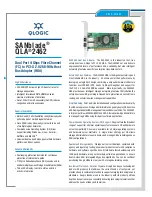
36 PA-5EFL Ethernet 10BASE-FL Port Adapter Installation and Configuration
Cisco 7200 Series and the 5EFL Port Adapter
To determine which type of port adapter is installed in your Cisco 7206, use the show diag slot
command. Specific port adapter information is displayed, as shown in the following example of a
5EFL port adapter in chassis slot 2:
Slot 2:
Ethernet port adapter, 5 ports
Port adapter is analyzed
Port adapter insertion time 2d09h ago
Hardware revision 1.5 Board revision A0
Serial number 4294967295 Part number 73-1556-04
Test history 0x0 RMA number 00-00-00
EEPROM format version 1
EEPROM contents (hex):
0x20:01 03 01 05 FF FF FF FF 49 06 14 04 00 00 00 00
0x30:50 00 00 00 FF FF FF FF FF FF FF FF FF FF FF FF
Note
Port adapters used with the 7200 VXR routers require the correct base hardware revision in
order to function. The following error message will occur on bootup if the incorrect hardware
revision is used:
>
PA-3-REVNOTSUPPORTED:PA in slot 1 (Ethernet) requires base h/w revision of (1.5)
for this chassis
Use the sh diag command to display the hardware revision.
For complete Cisco 7206 command descriptions and examples, refer to the publications listed in the
section “If You Need More Information” on page 2.
Using the ping Command
The packet internet groper (ping) command allows you to verify that an interface port is functioning
properly and to check the path between a specific port and connected devices at various locations on
the network. This section provides brief descriptions of the ping command. After you verify that the
system has booted successfully and is operational, you can use this command to verify the status of
interface ports. Refer to the publications listed in the section “If You Need More Information” on
page 2, for detailed command descriptions and examples.
The ping command sends an echo request out to a remote device at an IP address that you specify.
After sending a series of signals, the command waits a specified time for the remote device to echo
the signals. Each returned signal is displayed as an exclamation point (!) on the console terminal;
each signal that is not returned before the specified time-out is displayed as a period (.). A series of
exclamation points (!!!!!) indicates a good connection; a series of periods (.....) or the messages
[timed out] or [failed] indicate that the connection failed.
Following is an example of a successful ping command to a remote server with the address 1.1.1.10:
Router# ping 1.1.1.10 <Return>
Type escape sequence to abort.
Sending 5, 100-byte ICMP Echoes to 1.1.1.10, timeout is 2 seconds:
!!!!!
Success rate is 100 percent (5/5), round-trip min/avg/max = 1/15/64 ms
Router#
If the connection fails, verify that you have the correct IP address for the server and
that the server is active (powered on), and repeat the ping command.





































